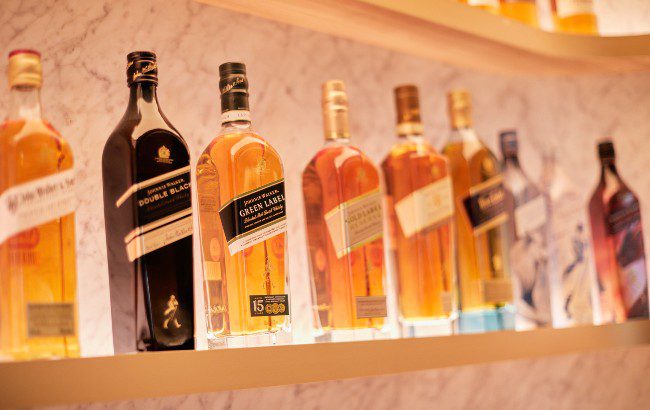Imported whisky volumes fall 10% in Thailand
By Nicola CarruthersTequila, rum and single malts are booming in Thailand but blended whisky appears to be falling out of fashion with locals.

Total beverage alcohol (TBA) volumes in Thailand rose by 2% last year, but were flat from 2019 to 2024, according to IWSR.
IWSR believes the alcohol landscape in Thailand is shifting ,with imports of beer and whisky contracting as locals turn to wine and cocktails.
Beer and whisky are the dominant categories in Thailand, with the premium-and-above beer segment accounting for more than 80% of the country’s on-trade volumes in 2024.
Meanwhile, blended Scotch whisky was the ‘most lucrative’ subcategory, representing a third of the spirits category’s value sales in Thailand’s bars.
However, IWSR noted changing consumer drinking habits with wine and white spirits (led by cocktails) becoming ‘increasingly significant’ in recent years. Beer imports have also struggled to compete with well-known local brands and blended whisky is starting to ‘fall out of fashion’, IWSR warned.
Jalene Teng, IWSR’s senior market analyst, said spirits such as Tequila, rum, vodka and gin were “fast becoming crowd favourites thanks to their huge popularity in cocktail bars”.
Thailand’s on-trade scene is also thriving, particularly in tourist areas such as Bangkok, Phuket, Samui and Chiang Mai, IWSR noted.
Agave spirits volumes soared by 57% in Thailand last year. IWSR predicts this category will expand by a compound annual growth rate (CAGR) of 18% between 2024 and 2029.
“Tequila has emerged as a fashion trend, with consumers enjoying it in bars, clubs and restaurants to showcase their discernment,” Teng noted. “It has become an integral part of their identity, reflecting their sophisticated taste and social status.”
The cocktail boom has also led to a surge in volumes for bitters, which rose by 47% last year.
Imported spirits categories are also growing, including rum (up by 16%), vodka (up by 8%) and gin (up by 6%).
Teng added: “Two bars in Bangkok were recently ranked among the 2025 top five cocktail bars in Asia – highlighting the exceptional quality of Thailand’s bar scene. This recognition is also helping to generate excitement and momentum within the local cocktail culture.”
‘Outdated’ blended whisky image
Meanwhile, imported whiskies are facing increased competition from local Thai products, alongside strict advertising rules and high import tariffs.
Imported whisky volumes declined by 10% in 2024 and are predicted to be flat in the five years to 2029, according to IWSR forecast data.
Total whisky sales took a slight hit during 2024, amid signs blended whisky is seen as outdated among Thai consumers. On the other hand, single malt is gaining traction, while Japanese whisky volumes are being fuelled by the growing popularity of the country’s cuisine, driven by the Highball serve.
“The whisky category faces stiff competition from agave-based spirits and of rum, vodka and gin, all of which are steadily gaining in popularity,” explained Teng. “However, Thailand’s vibrant cocktail scene encourages locals and tourists alike to experiment with whisky-based drinks, which could drive future sales growth.”
Diageo-owned blended Scotch Johnnie Walker was the number-one international spirits brand in Thailand (IWSR 2023 retail sales data). It also had the highest market share of any Scotch brand in the country in 2023.
IWSR noted that tax reductions for wine have helped to boost the category in Thailand. Locals are also favouring the category over spirits, particularly brown spirits, due to wine’s “perceived health benefits and lower intoxication levels”, Teng said.
Meanwhile, beer accounted for more than 70% of TBA volumes in 2024, dominated by the likes of leading local players like Chang and Singha.
Overall beer volumes rose by 3% in Thailand last year, but imported brands were down by 2%.
Teng added: “Although local consumer confidence has been affected by concerns over a sluggish economic recovery, political instability, and the impact of US tariffs – and tourists are showing more caution in their spending – Thailand’s ongoing effort to boost the tourism sector, vibrant on-trade, and the enduring popularity of local brands provide a solid foundation for growth.”
According to IWSR, spirits volumes in Asia Pacific fell by 2% last year, driven by declines for Cognac, Scotch and baijiu in China.
Related news
Aperol makes Asia ambition known at EDC Thailand
Julie Nguyen from Thailand crowned 2023 World’s Sustainable Cocktail Champion by Flor de Caña
